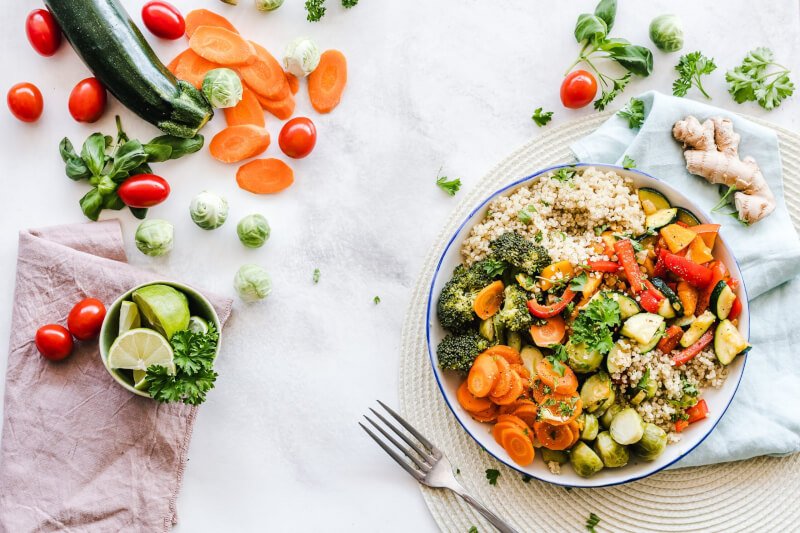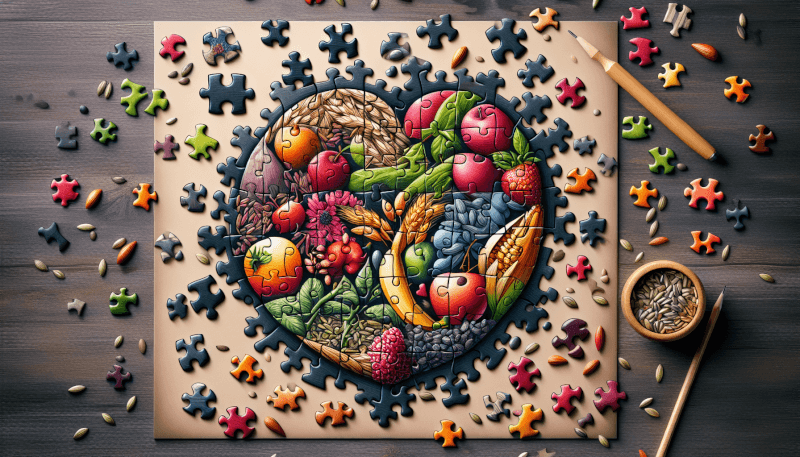Have you ever wondered if you are providing the right nutrition for your feathered friend? In the world of avian health, it is easy to make common mistakes that can negatively impact your bird’s well-being. From improper diet choices to inadequate hygiene practices, this article aims to shed light on the most prevalent errors made in avian nutrition and health. By understanding these pitfalls, you can ensure that your avian companion receives the proper care and attention they deserve.

Mistakes in Diet
A balanced diet is crucial for the overall health and well-being of your avian friend. An unbalanced diet can lead to a variety of health issues, so it’s important to ensure that your bird is getting the nutrients it needs. When it comes to avian nutrition, an inadequate variety of foods can also be problematic. Offering a diverse range of fruits, vegetables, grains, and proteins will help provide your bird with a well-rounded diet.
In addition to unbalanced and inadequate variety, inappropriate feeding techniques can also contribute to nutritional deficiencies. It’s important to offer your bird food in a way that allows it to eat comfortably and naturally. Some birds prefer dishes on the ground, while others may prefer to eat from elevated feeding stations. Observing your bird’s feeding behavior and providing the appropriate feeding setup can greatly improve its mealtime experience.
Inadequate Water Supply
Water is essential for all living beings, and birds are no exception. Insufficient access to water can lead to dehydration and other health issues. Make sure that your bird always has access to fresh, clean water. Regularly change the water and clean the water containers to prevent bacteria buildup. The proper water quality is also important, as contaminated or impure water can have adverse effects on your bird’s health.

Vitamin and Mineral Deficiencies
Vitamins and minerals play a vital role in the overall health of your bird. A lack of essential vitamins can weaken the immune system and lead to various health problems. Similarly, mineral imbalances can cause issues with bone health, beak and feather quality, and other bodily functions. Providing a well-balanced diet that includes a variety of fresh fruits, vegetables, and avian-specific supplements can help prevent these deficiencies.
Excessive Treats and Table Food
While treats and occasional table food can be a fun way to bond with your feathered friend, overindulgence can have negative consequences. Excessive treats can lead to weight gain and obesity, as well as imbalances in the bird’s regular diet. Feeding inappropriate table food can also be harmful, as certain foods can be toxic to birds. It’s important to offer treats in moderation, and always research which human foods are safe for your avian companion.

Neglecting Grit and Calcium
Grit is an essential part of your bird’s diet as it aids in digestion by helping to break down food in the gizzard. Neglecting to provide your bird with an adequate supply of grit can lead to digestive issues and nutrient absorption problems. Additionally, calcium is crucial for eggshell formation in female birds. A lack of sufficient calcium can result in weak or thin eggshells, which can lead to complications during egg-laying. Ensure that your bird has access to appropriate grit and a calcium-rich diet to support its digestive and reproductive health.
Inadequate Avian Species-Specific Diets
Different bird species have different dietary requirements, and feeding an incorrect diet for the species can have significant consequences. Some birds are herbivores, while others are omnivores or insectivores. Providing the wrong type of food can result in nutritional deficiencies and various health issues. It’s essential to research and understand the specific dietary needs of your avian companion and provide a species-specific diet that meets its nutritional requirements.

Poor Feeding Practices
Maintaining clean feeding dishes and containers is crucial for your bird’s health. Dirty feeding dishes can harbor bacteria and other pathogens that can cause infections and illnesses. Regularly clean and sanitize the feeding equipment to prevent the buildup of harmful microorganisms. Additionally, it’s important to monitor your bird’s food intake. Some birds tend to overeat, while others may have a decreased appetite. Observing your bird’s eating habits can help you identify any changes in its appetite or feeding behavior, allowing you to address potential health issues promptly.
Over or Underfeeding
Finding the right balance when it comes to portion sizes and feeding frequency is key to maintaining your bird’s health. Overfeeding can lead to weight gain and associated health problems, while underfeeding can result in malnutrition and energy deficiencies. Consult with a veterinarian or avian nutrition specialist to determine the appropriate portion sizes and feeding schedule for your bird based on its size, activity level, and specific dietary needs.

Inappropriate Storage of Feed
The way you store your bird’s feed can also impact its nutritional value. Exposure to moisture or pests can lead to the growth of molds and bacteria, rendering the feed unsafe for consumption. Properly store bird feed in a dry and cool location, away from direct sunlight and potential pests. Additionally, pay attention to the expiration dates on packaged bird food and dispose of any expired products promptly.
Ignoring Behavioral and Environmental Factors
Birds have natural instincts and behaviors that should be accommodated in their environment. Providing ample foraging opportunities can help stimulate their minds and encourage natural feeding behaviors. This can be achieved through the use of foraging toys, scattering food in different areas of the cage, or providing food in puzzle feeders. Neglecting interaction and mental stimulation can lead to boredom and stress, which can negatively impact your bird’s overall health and well-being. Make sure to spend quality time with your avian companion, engage in play, and provide a stimulating environment to promote a happy and healthy life.
By avoiding these common mistakes in avian nutrition and health, you can ensure that your feathered friend thrives and enjoys a long and fulfilling life. Providing a balanced and varied diet, ample water supply, appropriate feeding practices, and considering the specific needs of your bird’s species are key to maintaining optimal health. Remember to consult with a veterinarian or avian specialist regularly to address any concerns or questions regarding your bird’s nutrition and well-being. With proper care and attention, you can be a responsible and knowledgeable bird owner, providing the best possible nutrition for your avian companion.


